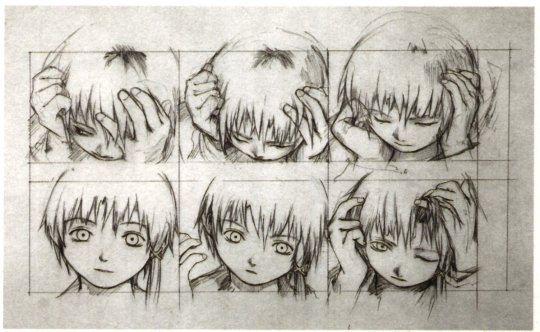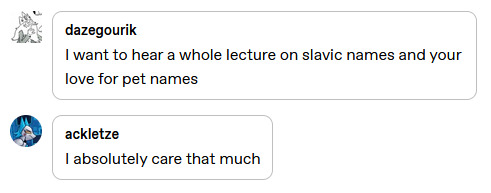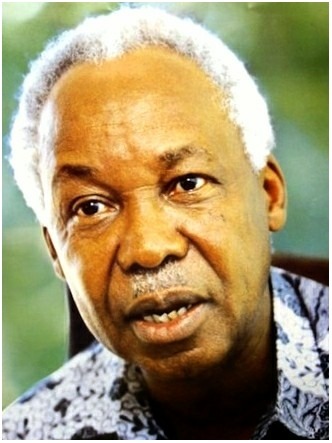#hypocorism
Text
Word Formation in English

Word Formation Processes:
Word formation, also known as morphology, is a fascinating aspect of linguistics that deals with how words are created and constructed within a language.
It explores the rules and processes by which new words are formed, whether by combining existing morphemes (the smallest units of meaning) or by altering existing words through various affixes, compounding, blending, and other mechanisms.
Affixation:
Affixation is one of the most common methods of word formation.
Affixes are added to the base or root of a word to create new words.
There are two types of affixes: prefixes (attached before the root) and suffixes (attached after the root).
For example:
Prefix: un- in unhappy
Suffix: -ly in quickly
Compounding:
Compounding involves combining two or more complete words to create a new word.
This process often leads to the formation of compound nouns, adjectives, or verbs.
For example:
Breakfast (break + fast)
Bookshelf (book + shelf)
Blending:
Blending is the process of combining parts of two words to create a new word whose meaning is often a blend of the original words.
This method is common in creating new terms for technological advancements or cultural phenomena.
For example:
Brunch (breakfast + lunch)
Spork (spoon + fork)
Conversion:
Conversion, also known as zero derivation, involves changing the grammatical category (such as a noun, verb, adjective, or adverb) of a word without adding any affixes.
This is achieved by using a word in a different context or with a different grammatical function.
For example:
She can run fast. (verb to adverb)
I need a light. (adjective to noun)
Back-formation:
Back-formation is the process of creating a new word by removing an affix from an existing word.
This typically occurs when a word is mistakenly perceived to be derived from another word with an affix.
For example:
Edit (from editor)
Burgle (from burglar)
Acronyms and initialism:
Acronyms involves forming a new word from the initial letters or parts of a series of words. Initialism is similar but involves using the initial letters as letters, not as a pronounced word.
For example:
NASA (National Aeronautics and Space Administration)
UNICEF (United Nations International Children's Emergency Fund)
Reduplication:
Reduplication involves repeating either all or part of a word to create a new word.
This process is often used to indicate plurality, intensification, or repetition.
For example:
Chit-chat
Ping-pong
Clipping:
Clipping involves shortening a word by removing one or more syllables.
The shortened form typically retains the meaning of the original word.
Clipped words often become informal or slang terms.
For example:
Phone (from telephone)
Exam (from examination)
Abbreviation:
Abbreviation involves shortening a word or phrase by retaining only the initial letters or syllables.
Abbreviations are often used for convenience or brevity, particularly in written communication. For example:
etc. (from et cetera)
Dr. (from Doctor)
Borrowing:
Borrowing involves adopting words or expressions from another language and incorporating them into one's own language. Borrowed words often undergo adaptation to fit the phonological, morphological, and syntactic patterns of the borrowing language.
For example:
Piano (from Italian pianoforte)
Tsunami (from Japanese tsu meaning harbor + nami meaning wave)
Folk Etymology:
Folk etymology occurs when speakers reinterpret the origin of a word based on similarity to other words in the language.
This often involves changing the form of a word to make it more familiar or logical.
For example:
Hangnail (originally agnail, but influenced by hang due to its location on the finger)
Cranberry (originally craneberry, but influenced by the similarity to cran due to the plant's appearance)
Calque:
Calque involves translating the components of a word or phrase from one language into another while maintaining the same semantic structure. This process results in a new word or phrase in the borrowing language.
For example:
Skyscraper (calque of the French gratte-ciel, literally scrape-sky)
Loanword (calque of the German Lehnwort)
Loanwords:
Loanwords are words adopted from another language with little to no modification.
Unlike borrowing, loanwords retain their original form and are often used to refer to concepts or objects unique to the source culture. For example:
Café (from French)
Sushi (from Japanese)
Hypocorisms:
Hypocorisms involve the formation of endearing or affectionate forms of words, often through the addition of diminutive suffixes or alterations to the original word.
Hypocorisms are commonly used in personal names or terms of endearment.
For example:
Johnny (hypocorism of John)
Sweetie (hypocorism of sweet)
Each of these word formation processes contributes to the richness and diversity of language, reflecting historical, cultural, and
social influences on linguistic evolution.
Productive Word Formation Processes:
In English, some word formation processes are more productive than others, meaning they are more commonly used and result in the creation of a greater number of new words.
Among the most productive types of word formation processes in English are:
Affixation:
Affixation, particularly the use of prefixes and suffixes, is highly productive in English. Adding prefixes like un- or re- and suffixes like -ness or -able allows for the creation of numerous new words while maintaining consistency in meaning and grammatical structure.
Compounding:
Compounding is another highly productive process in English, especially in fields like technology, science, and culture.
By combining two or more existing words, English speakers can create new terms to describe complex concepts or emerging phenomena.
Compounds like smartphone, email, and blackboard are ubiquitous examples.
Borrowing:
English has a long history of borrowing words from other languages, making borrowing a productive process for expanding vocabulary. Borrowings from languages such as Latin, French, and Greek have enriched English with terms in various domains, including academia, cuisine, and the arts.
Clipping:
Clipping, or shortening words, is commonly used in informal or colloquial language, especially in spoken English and slang.
Clipped forms like info (from information), ad (from advertisement), and math (from mathematics) are frequently encountered in everyday conversation.
Conversion:
Conversion, or zero derivation, is particularly productive in English because it allows for the creation of words without adding any affixes. By changing the grammatical function of a word, English speakers can easily adapt existing vocabulary to suit different contexts.
For instance, text can function as both a noun and a verb (I received a text vs. I will text you).
Word Formation in English
Word Formation: Word derivation; Word Building in English
Complex Sentence With Multiple Dependent Sentences
Conditional sentences: Mixed and Implied
Complex Sentences
Read the full article
#abbreviation#acronyms#adopt#affixation#another#back-formation#blending#borrowing#calque#clipping#combining#completewords#compounding#conversion#diminutivesuffixes#expressions#from#hypocorism#initialletters#initialism#language#loanwords#morphology#oftwowords#parts#reduplication#removingsyllable#removingtheaffixes#repeating#shorteningword
0 notes
Text

> I started bleeding when I was brushing my teeth.
Could it be pyorrhea?
My teeth were always so healthy.
I can taste my blood.
It’s a bit bitter and I don’t like it.
I think I won’t stop bleeding and that I won’t be able to fall asleep.
> From Lain PSX game, laingame.net.
#lets all love lain#serial experiments lain#webcore#vintage anime#lain#hypocore#y2k#y2k nostalgia#nostalgia#anime#ps1#sony ps1#ps1 aesthetic#dont worry lain#youre just stressed.
51 notes
·
View notes
Text
"let me know when that booty is warm" sounds so vulgar in english
3 notes
·
View notes
Text
Grasp (a Do-Over)
Love handles love handles.
Love handles love handles.
Love handles love handles.
Love handles love handles.
10 notes
·
View notes
Text

Post: Terry Crews Talks AGT, Hidden Talents, & Falling For A White Chick https://www.blaqsbi.com/53FZ
0 notes
Text
The Last Of Us Episode 8 Recap: Joel And Ellie's Most Desperate Hour
Screenshot: HBO
With just one episode to go, we’re nearing the end of Joel and Ellie’s long journey together. This week’s entry, “When We Are in Need,” corresponds with the game’s winter section, though the HBO adaptation isn’t using the same seasonal structure of the game, and here in TV land, it’s been winter for a while.
When I first played The Last of Us ten years ago, in some ways the…

View On WordPress
#Broadchurch#Craig Mazin#David#Ellie#English-language films#Hannah#HBO#Humans#Hypocorisms#James#Joel#Kenneth#Kotaku#Nathan Drake#naughty dog#Nolan North#Scott Shepherd#the last of us#Troy Baker
0 notes
Note
The craziest nickname i know of even more of of leftfield than Peg for Margaret, is Tuck for William. Can you explain where that one came from?
While I've seen a few scattered Williams who go by Tuck, I've never seen any formal association with the name William.
I feel like English has too many terms for nicknames (diminutive, hypocorism, sobriquet, pet name, etc.) which either have no firm definitions, or they have definitions that largely overlap - which leads to a lot of confusion as to exactly what type of nickname you're talking about.
For example: my given name is Samantha, but my family calls me Sissy. Sissy is my (a person named Samantha's) nickname, but that doesn't mean Sissy is a nickname for Samantha.
So while Tuck may be a person named William's nickname, it isn't a nickname for William (at least not that I've ever come across).
And Peg may seem odd, but it's actually pretty straight-forward linguistically:
Margaret was shortened Marg, Marg became Mag due to many British dialects lacking rhoticity, Mag became Meg as a result of the Great Vowel Shift, and Meg rhymes with Peg and people really, really like rhyming stuff.
82 notes
·
View notes
Text
DAN FENG - Tethering The Sky and Reaching For Heaven


ꜱᴛᴀʀʀɪɴɢ *:・゚✧*:・゚
↳ 『honkai: star rail』dan feng/imbibitor lunae/yinyue jun (ugh can he stop having so many names??? it makes tagging a complete nightmare) x gn!reader
ꜱʏɴᴏᴘꜱɪꜱ *:・゚✧*:・゚
↳ parting ways with silly dragon guy before he reincarnates and dies idk idgaf abt his backstory 👍👍👍
𑁍 ᴡᴏʀᴅ ᴄᴏᴜɴᴛ: 1.0k
ɴᴏᴛᴇ ꜰʀᴏᴍ ᴀᴜᴛʜᴏʀ *:・゚✧*:・゚
↳ surprise!!!! yet another short fanfic abt a long haired man! anyways happy early 1.3! i wish everyone a very e6 lynx and good luck on whoever you’re pulling for. ALSO HOW TF DO YOU DO CHINESE DIMINUTIVES/HONOURIFICS IN X READER FICS??? 阿Y/N???? OR MAYBE IN PINYIN??? a’y/n or ah’y/n??? OR WOULD IT BE LIKE 阿[the first character of your name] LMFAO

“What do you mean ‘you’re leaving?’ Where are you going?” You ask, taking a step closer to him, trying in vain to figure him out.
“We won’t see each other again. I’ve… done something horrible.”
“Care to elaborate?”
“…It’s not our main concern as of now. I’m sure my punishment will come for me soon. I don’t know how much time I have left with you.”
“Okay, what’s going on? I still have no idea what you’re talking about.”
“You’ll understand soon. I’d just like to spend one final moment with you.” Dan Feng grabs ahold of your hands, his grip almost painful as his fingers lock with yours.
“Are you… You don’t love me anymore?” A thousand thoughts rush through your head, yet none of them makes sense. “Do you want to see other people?”
“No, no, no. Of course not. That’s not what I meant. I meant that…” He pauses, concentrating. “We don’t have much time left.”
“But what does that-“
“Forget it. Would you just follow me, 心肝? Humour me. Please.” Your eyebrows furrow at the odd hypocorism. Before you can answer him, Dan Feng is leading you towards the dock. Bright yellow ginkgo leaves drift down from the sky, signalling a change in the year as they fall. There’s a scent in the early autumn air, and it reeks of… gloom; fraught with melancholy and a lingering anxiety that seems to cling to you. It whispers into your ear sweet serenades, singing a cacophony of incoming danger. The signal of change grows to a warning.
“Why are we heading towards the water?”
“Please, 亲爱的. Do not question me right now. Just… let us have a simple conversation. Would that be alright?” He sighs as the two of you exit the main area of the Alchemy Commission.
“I guess… You’re acting weird, you know that?” you sigh. “How was your day?”
“Great. And yours?” He answers a little too quickly.
“It’d be better if I knew what was happening.” Dan Feng turns his head to look back at you, a million words he wants to say are hidden behind his watery eyes.
Your shoe gets stuck in a crack in the stone walkway as you’re busy staring at him. You stop to pull it out but Dan Feng yanks on you, your shoe slipping off of your foot as he continues walking.
“Hey, wait! 枫仔! My shoe!” He doesn’t let go, his hand shaking in yours with a sense of urgency. “How am I supposed to walk without it?” You hop on a single foot, trying to keep up with his pace. In response, he picks you up into a bridal carry, cradling you like a parent would for their child.
“O-oh. Uh… okay. I guess I don’t mind…” You look up at his trembling jaw. Whatever’s going on, it must be very important to Dan Feng. If only he’d spit it out already so that you could offer your comfort. But the most you can offer right now is a small kiss. You bring your head up, pressing your lips against his cheek before resting your head back down on his forearm. The display of affection causes Dan Feng to stop in his tracks, but he quickly starts walking again.
“I...” He clears his throat, a light blush blossoming on his face. “That… means a lot to me right now. Thank you.”
“It’s the least I could offer you, 枫仔. You look so sad… Tell me what’s wrong.” He looks towards the horizon and the setting sun, a forlorn expression painting his face. The shadows of the evening light leave him looking especially somber. For a moment, he wants to tell you the whole truth. But he holds himself back to spare your feelings.
“I’m going somewhere. And… I won’t be returning. I am sorry, [name]. Truly. I do not wish to part ways but…” He looks down at you. A tear drips off of his face and onto yours. “There is nothing to be done about it. I… wouldn’t have done it if I realized the consequences sooner.”
“You’re… not joking. Would you tell me where you’re going? And when? Why are you being so vague?” You still couldn’t grasp the concept.
“亲爱的,you would hate me if I told you the whole truth. I could not leave knowing that you despised me. But… I’m sure you’ll find out soon when the news gets out.” Dan Feng looks back up towards the sky. You follow his gaze towards a few clouds that are coloured a hue of red from the sunset.
“I love you dearly. I apologize… I have forgone our future and forsaken you. Please remember me as someone you loved, and not a traitor to the Luofu.”
“Er… okay…? You’re really leaving?”
“Yes, I am afraid so…”
“…I love you too. Wherever you’re going, don’t forget that, okay? I… I really can’t believe it. I’m not gonna see you again. Ever…? Will you come visit me?”
“That is not possible, I fear. Though I wish more than anything that I could.”
The two of you reach the harbour. Dan Feng sets you down on the wooden planks and takes a seat beside you, dipping his legs into the water.
“Your pants are gonna be soaked, 笨蛋!”
“I am aware of that fact.” He pays you no mind, looking on into the horizon again. You gently hold is hand in yours.
“This… this is it? The last time I’ll see you? And we’re just… staring at nothing in complete silence?”
“You are speaking right now, [name].”
“What did you even do?” He glances at you. But as you make eye contact, he can’t seem to look away.
“…What are you doing?”
“You ask so many questions, 亲亲. I prefer it when you’re asleep. You’re much cuter in bed, too.” Dan Feng lightens up a little, a smile on his face as he teases you. “I’m just…” He shakes his head, as if to get himself out of a daze. “I’m just trying to remember your face. I need to make sure I don’t forget it…” His expression returns to how it was before, desolate and heartbroken.
“Make me a promise, 亲亲.”
“Go on.”
“We will meet in my next lifetime. And… we will live out a future that we could not have in this one.” He holds out his pinky finger and you take it.
“Sounds nice. I’ll hold you to it, Dan Feng.”

ask before translating, taking inspo from (not copy), reposting, etc. my work. remember to credit me and if you’re taking inspo from it, please @ me as I’d like to see what you do with my ideas!
#dan feng#honkai star rail#honkai: star rail#dan feng x reader#yinyue jun#yinyue jun x reader#imbibitor lunae#imbibitor lunae x reader#.forestfics ☆
183 notes
·
View notes
Note
You mentioned that Vlad!Clone-Dani needed a name (in your notes, I think). According to Wikipedia. "Vlad is a Romanian male given name. It is more commonly a nativized hypocorism of Vladislav and can also be used as a surname."
The feminine version of Vladislav is Vladislava. So maybe that? Jury's out on whether she'd like that name or whether she'd insist on being referred to as something else.
(We are discussing this post) You're the third person to suggest Vladislava! The other suggestions were: Vivian, Viorica, Valentina, Maddie, and Madison (shortened to Madi, so it's reminiscent of Dani).
I genuinely don't know which I like the most lol. The safest bet may be to give her a hyphenated name or a middle name, so then we get the best of both.
So I guess the question now is:
Vladislava Madison Masters?
Or Madison Vladislava Masters?
#danny phantom#asks#kinda thinking the latter tbh. i just really like 'Madi' as an option#and the person who suggested it was absolutely correct about it being on brand for Vlad to name her that lol
55 notes
·
View notes
Text

hypocorisms, [Teen], 2183 words
Neil Josten/Andrew Minyard
Summary:
Three times Andrew calls Neil “rabbit,” and one time he calls him “bunny.”
It's not a pet name if it's meant to be an insult, right? In this NOW fic, Andrew toes the line between mockery and fondness. (It's a Bunny fic, y'all!)
#aftgthenandnow#aftgthenandnow23#[fest work]#[fic]#all for the game#aftg#the foxhole court#tfc#neil josten#andrew minyard#andreil
18 notes
·
View notes
Text
frame by frame, iwakura lain.

#serial experiments lain#hypocore#lain#lets all love lain#anime#vintage anime#nostalgia#cyber#cyberpunk
22 notes
·
View notes
Note
Winnie or Winny (/ˈwɪniː/ WIN-ee) is a male and female given name of Welsh origin, a short form (hypocorism) of Edwina, Winona, Winifred or Winnifred, Winter, Gwendolyn, Guinevere (Welsh), Gwyneth (Welsh), and Wynne (Welsh). The name's meaning is: fair one, white and smooth, soft, happiness, or fair and pure. - via Wikipedia
I personally vote Guinevere(Winnie) Dewey Sinclair-Carpenter.
Enid can call her, her little princess because we all know Enids wrapped around that tiny finger.
guinevere is such a nerd ass name, i love that
Guinevere 'winnie' dewey carpenter. No sinclair, bc like.. i have plans for enid to leave that name anyways soooooo
15 notes
·
View notes
Text

@dazegourik, @ackletze
well, guys, you asked for this :D
i'm gonna talk mostly about russian names, but a lot of this can be applied to other east slavic languages.
when it comes to the structure of russian name, full name of a person consist of three parts: first name, patronymic and surname (family name). patronymic is the name of your father, but in a form of linguistic subordination. it's an extremely important thing and a lot of western media completely ignores it when they create russian characters or wanna portray some historical events.
another very important thing is the usage of hypocorisms, which is fundamental for our naming traditions. spoiler: with a few exceptions, in everyday interactions we don't really use our first names in their full forms, we use mostly hypocoristics. there are plenty of them for each name and they can be used in various different situations. as words, they are built with some common suffixes, some of them can be used not only with names, but with some regular words too.
so, easier to explain with an example. let's say, we have a russian feminine name:
"Ekaterina Alexandrovna Orlova" (Екатерина Александровна Орлова).
"Ekaterina" - is the first name. "Alexandrovna" - is the patronymic, derivative from "Alexandr". "Orlova" - is the surname. notice the usage of grammatical gender here for patronymic and surname, male version would be "Alexandrovich" (Александрович) and "Orlov" (Орлов). russian language is gendered even when it comes to names.
we use full names like that mostly for official documents and stuff. sometimes people call you by your first name and surname, when there are other people with the same first name around. it's also very typical thing in schools, teachers would call you by your first name and surname or just surname.
completely different things is a full first name + patronymic combination. which, in this example, would be "Ekaterina Alexandrovna". basically, it's a very polite and formal way to address a person, similar to honorifics in other languages. it's the most common way to show respect to someone. it's the way we address teachers, superiors, doctors, executives, important clients or just older people. it's respectful and normal to address people of certain age like that, especially people who're much older than you. that's why some people don't like when you call them like that, as they say, "it makes them feel old". also it can be very weird to call your friends like that, obviously.
the next thing is full first name, which is where cultural difference becomes crazy. so, in this example, full first name is "Ekaterina". and well, thing is, almost no one would call you like that. we use this form in some business-like language, like when you talk with clients. that's why it's so distracting when we watch some western movie and a russian character calls their lover or friend with their full name: it's not appropriate, it feels like they're sitting in the conference room. it's also the way your mom would call you, when she's mad at you (i guess, it's a universal experience). i would also like to note, that some names are exceptions to this and usually used in their full form: the names "Kirill", "Anton", "Andrey" etc (usually short masculine names).
so, how would people call you then? this is where all kind of hypocoristics can be applied. i'm gonna list some examples for "Ekaterina" in the order of most common to less common and how appropriate to use them in certain situations:
"Katya" (Катя). this is how most people would call a person named "Ekaterina". this is a neutral form. your friends, acquaintances, classmates, colleagues and family would call you like that in the everyday conversations. examples for other names would be "Ivan" -> "Vanya" (yeah, i'm angry about the umbrella academy), "Mikhail" -> "Misha", "Anastasiya" -> "Nastya", "Olga" -> "Olya" etc.
"Katyusha" (Катюша). soft and gentle form. this is the way your lover or close friend would call you. also, sometimes people just call someone like that to add some gentleness to conversation, especially when they're talking with someone nice.
"Kat'ka" (Катька). very informal, familiar form, so it can be very rude to call a person like that, if you don't know them closely. it has a very specific sound to it, which can be used to draw attention of the person or add some playfulness to the conversation.
"Katyuha" (Катюха). familiar form with a bit of wild tone to it. it's usually used by friends, because it has this specific "bro/sis" energy to it.
"Katyunya" (Катюня). very soft form, can be used by lover or a very close friend to show affection.
"Katen'ka" (Катенька). very soft diminutive form and technically not a hypocoristic by itself, but "Katya" + common suffix "en'k". it has this soft pleading or consoling tone to it. it's usually used in situations, when you want to show a vulnerable affection for a person, like when they're crying or upset. in some situation it can sound condescending, so it's very important to know when it's appropriate.
there are plenty of other forms and we can combine different suffixes to create some affectional abominations like "Katyushen'ka" or something. it's fun! it can also add character to your speech, like, i know someone who always calls everyone with soft forms of their names ("Katyusha", "Lenusya", "Mishunya"). i personally almost never use anything other than neutral forms.
sadly, there is some sexism to it too, like it's way less appropriate to call your male friends with some of these variations in public, unless it's a joke. it's usually preferable to use two or three forms, that sound less diminutive:
"Mikhail" -> "Misha" (neutral) -> "Mihan" (friendly).
"Vladimir" -> "Volodya" or "Vova" (neutral) -> "Vovan" (friendly).
"Alexandr" -> "Sasha" (neutral) -> "Sanya" or "San'ek" (friendly).
forms like "Mihan" (Михан), "Sanya" (Саня), "San'ek" (Санёк) have specific tone to them, they're for friends only, as they usually aren't used by family or lovers. they're very similar to "Katyuha" (Катюха) example i gave earlier, in the sense that they have "bro" energy to them. your friends would call you like that, when they're trying to sound very casual and informal.
that's basically it, i think. obviously, the most difficult thing is to know all of this for different names, which we learn by experience or intuitive understanding of the language.
26 notes
·
View notes
Text
The way some people say that Poi doesn't deserve to be abused despite being literally a proven abuser and manipulator the past years (*) BUT at the same time still hold Builds stupid posts from 8-10 years ago over his liability and he deserves everything Poi does to him now.
The hypocorism of some of you....
Poi NEVER acknowledged her wrong doings nor apologized. Build did more than once!
*HINT: NOBODY says she deserves it because of what she did. BUT it literally makes her and her claims damn unreliable. There is such a big difference between writing some stupid ignorant post years ago AND LITERALLY being shown on videos and online harrasing people in RL in the span of the past 2 years!!
And don't come at me with these unproven and partly even debunked horror stories some random people on twt share. Don't believe everything you see online! You don't even know who these people are behind those accounts claiming shit.
#build jakapan#it's messed up how fast you people drop him without even hearing the full story (his side)#over a well known person yall loved to hate just one week ago!!#get some critical thinking skills please
11 notes
·
View notes
Text

“I'LL SPLIT YOUR HEAD OPEN FOR REAL!”
tokyo revengers masterlist

( HEADCANONS )
╰₊✧ ゚HYPOCORISM - pet-name hcs
ft. chifuyu matsuno, hajime kononoi, haruchiyo sanzu, izana kurokawa, kakucho, kazutora hanemiya, ken ryuguji, manjiro sano, ran haitani, rindō haitani, seishu inui, shinchiro sano, shuji hanma, takashi mitsuya + 21 more
8 notes
·
View notes
Text
Mwalimu.

Julius Kambarage Nyerere (13 April 1922-14 Octiber 1999).
Often referred to by the hypocorism "Mwalimu," Julius Kamabarage Nyerere was Tanzania's founding father, major force behind modern Pan-Africanism, premier anti-apartheid exponent, opposer of white supremacist governments in Southern Africa, patron of African freedom movements, graduate of history and economics, peace mediator, elder statesman, thinker, philosopher, diplomat.
Samples of Nyerere's life's work.
In this 1996 interview with Charlayne Hunter-Gault, a then 74 year old Nyerere was still as sharp as ever. Mwalimu discussed amongst other issues, the problem of absolute power as vested in the hands of minorities and his mediation efforts in the Great Lakes region following Rwanda's 1994 genocide.
1 note
·
View note